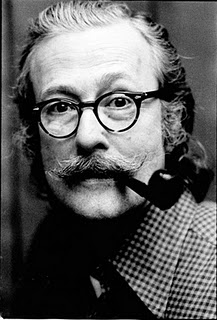
Peter Case is an American singer-songwriter and guitarist. His career is wide-ranging, from rock n' roll and blues, to folk rock and solo acoustic performance.
Oingo Boingo was an American new wave band formed by songwriter Danny Elfman in 1979. The band emerged from a surrealist musical theatre troupe, The Mystic Knights of the Oingo Boingo, that Elfman had led and written material for in the years previous.

Los Lobos is an American rock band from East Los Angeles, California. Their music is influenced by rock and roll, Tex-Mex, country, zydeco, folk, R&B, blues, brown-eyed soul, and traditional music such as cumbia, boleros and norteños. The band gained international stardom in 1987, when their version of Ritchie Valens' "La Bamba" topped the charts in the U.S., the UK, and several other countries. Songs by Los Lobos have been recorded by Waylon Jennings, Frankie Yankovic, and Robert Plant. In 2015, they were nominated for induction into the Rock and Roll Hall of Fame. In 2018, they were inducted into Austin City Limits Hall of Fame. They are also known for performing the theme song for Handy Manny.
In the United States, California is commonly associated with the film, music, and arts industries; there are numerous world-famous Californian musicians. Hardcore punk, hip hop, country, and heavy metal have all appeared in California. Furthermore, new genres of music, such as surf rock and third wave ska, have their origins in California.

Ralph Joseph Gleason was an American music critic and columnist. He contributed for many years to the San Francisco Chronicle, was a founding editor of Rolling Stone magazine, and cofounder of the Monterey Jazz Festival. A pioneering rock critic, he helped the San Francisco Chronicle transition into the rock era.

William Royce "Boz" Scaggs is an American singer, songwriter, and guitarist. He became prominent for his series of albums in the late 1970s, and songs "Lido Shuffle" and "Lowdown" from Silk Degrees (1976), which peaked at No. 2 on the Billboard 200. Scaggs continues to write, record music, and tour.
Mammoth Records was an independent record label founded in 1989 by Jay Faires in the Carrboro area of Chapel Hill, North Carolina. The majority of the acts on Mammoth were executive-produced by Faires and the label's general manager, Steve Balcom. The label was the first independent to produce two platinum records.

The Continental Drifters were an American rock band, formed in Los Angeles, California in 1991 and dissolved in New Orleans, Louisiana about a decade later. Though the line-up changed several times, at one point the band comprised a kind of college rock/indie-rock/power pop supergroup, including as it did Peter Holsapple of The dB's, Mark Walton of The Dream Syndicate, Bangle Vicki Peterson and Susan Cowsill of The Cowsills.

Barry Joseph Goldberg is an American blues and rock keyboardist, songwriter, and record producer.
Karp was an American post-hardcore band from Tumwater, Washington, that formed in 1990 and lasted until 1998. The band was formed by Chris Smith a.k.a. Chris "Slayer", Jared Warren and Scott Jernigan. They released three full-length albums titled Mustaches Wild, Suplex, and Self Titled LP. They also released several EPs and 7" records.
Seaweed was an American band from Tacoma, Washington who were active throughout the 1990s. Their style of music was a combination of various rock subgenres, including post-hardcore and punk rock. They were signed to various notable record labels, such as Sub Pop Records and Hollywood Records.

The It's My Life Tour was a concert tour headlined by Anglo-American hard rock band Tin Machine. The tour commenced on 5 October 1991 after two warm-up shows, one press show and three trade-industry shows, visiting twelve countries and concluding after sixty-nine performances, a larger outing than their first tour in 1989. The band purposefully booked intimate venues of a few thousand seats or less so that they could focus on the music without any theatrical trappings, a stark change from Bowie's previous Glass Spider and Sound+Vision tours. Bowie also wanted to avoid playing larger venues and arenas lest his fans show up "hoping I'd be doing old songs or something. We don't want that feeling at all."
Further was an American indie rock band from Los Angeles, California, United States, that evolved from an earlier band, Shadowland. They released several albums during the 1990s.
Angst was an American band from San Francisco, California.
Mule was an American punk blues band from Michigan, active in the early 1990s. Formed from the ashes of Wig and Laughing Hyenas, their music incorporated elements of hardcore punk, blues-rock, and alternative country.
Dana Kletter is an American musician and writer.

Edward Hoh was an American rock drummer who was active in the 1960s. Although primarily a studio session and touring drummer, Hoh exhibited a degree of originality and showmanship that set him apart and several of his contributions have been singled out for acknowledgment by music critics.
Slug was an American noise rock group that formed in Los Angeles in 1988 by DJs from Loyola Marymount University campus radio station KXLU. Originally formed as an experimental noise collage trio utilizing metal percussion, feedback and primitive sound loops created via gouged children's and sound effect records, they subsequently added traditional instrumentation to the mix.
Jabberjaw was a coffeehouse and music venue in Los Angeles, California known for its all-ages underground rock music shows. Located in Arlington Heights at 3711 Pico Blvd, it was established in 1989 by Gary Dent and Michelle Carr and closed in 1997.

Margaret Moser, or Margaret Moser Malone, was an American journalist, music enthusiast, critic and historian, groupie, and backup singer. She was best known for her work as the director of the Austin Music Awards (AMA) in the South by Southwest festival and for her career in music journalism and criticism, which lasted more than thirty years. Moser also supported young artists, helping them get started and finding appropriate venues where they could play. She has been called the "patron saint of Austin music" by the Paramount Theatre.









